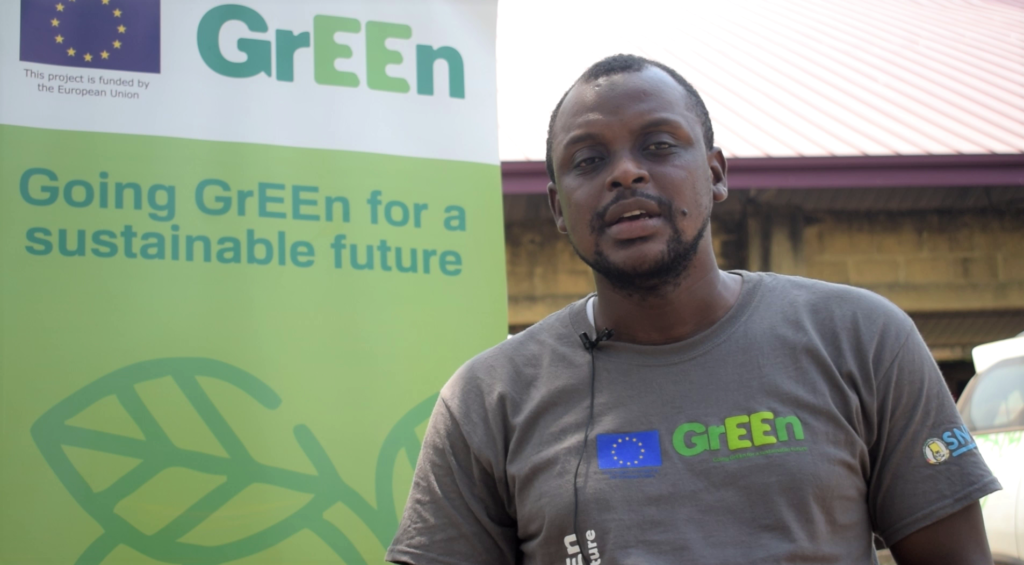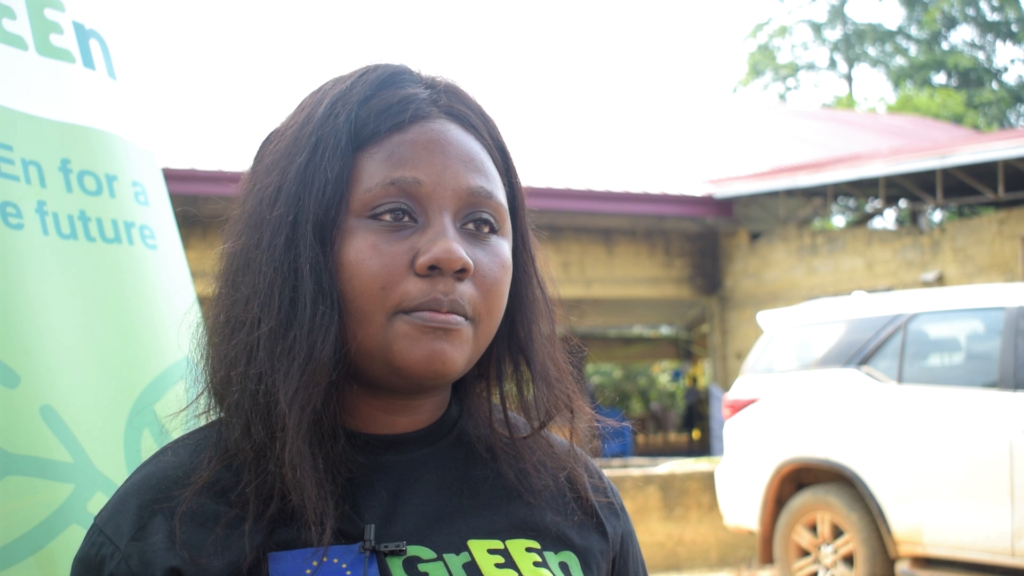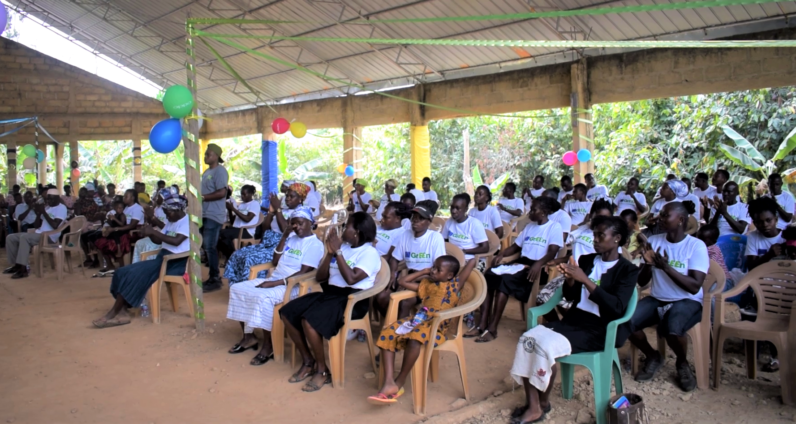Seventy-five (75) residents of Abenneso in the Western Region, have benefitted from the SOS-GrEEn cash for work initiative.
The initiative empowers the youth with technical skills in addition to a daily minimum wage of 12 cedis to help create their green businesses.
It is a 4-year project expected to contribute to the development of a green and climate-resilient economy.
SOS-Green Ghana will provide employability for beneficiaries to create a green economy for over 4,000 youths in ten MMDA's of the Western and Ashanti Regions.
The intervention by the organization in the municipality forms the basis of the development of a GrEEn Training manual.

The beneficiaries were trained on identifying green opportunities in their communities and how to be entrepreneurs in the green sector.
“Our main aim is to empower 4,000 cash for work beneficiaries such that they are able to secure green employment or start a green business. A daily minimum wage of 12 cedis is given to cash for work beneficiaries,” Project coordinator SOS- GrEEn Ghana, Shaibu Fuseini said.
He said, “over 75 beneficiaries have graduated from the project and we want beneficiaries to start a business in their local green economy, so we took them through some training, soft skills, employable and entrepreneurial skills”.
According to the project coordinator, the selection of the district is spearheaded by the Ministry of Local Government and Rural Development.
“…when the Ministry selects these districts, we look through the medium-term development plan of these MMDA’s and find a climate infrastructure that can be funded”, he said.
Partners of the SOS- GrEEn project, United Nations Capital Development Fund (UNCDF) educated beneficiaries on financial literacy during the training.

Berenge S. Jantuah, Community Development Officer UNCDF, noted, “the training will help participants escape poverty by building savings, growing assets and creating wealth”.
Beneficiaries who graduated from the SOS-GrEEn cash for work project, shared their experience after the 3 months training.
Tracy Donkor, a beneficiary farmer revealed that through the project, she has been able to buy a fridge with which she will start a 'sobolo' business.
Another beneficiary noted, “my money is now safe because United Nations Capital Development Fund (UNCDF) has opened an account for me”.
The project was funded by the European Union in partnership with the United Nations Capital Development Fund (UNCDF).
Latest Stories
-
What Is Agentic AI, and how will it change Fintech?
16 minutes -
Celebrating the future of STEM: African Science Academy’s 2025 graduation set for June 9
18 minutes -
Ecobank and ADB executives pay business calls on GCAA
19 minutes -
Dr Kenneth Ashigbey exits Telecoms Chamber as CEO
20 minutes -
Alliance for Development & Industrialisation supports new energy sector levy
24 minutes -
When the playground becomes a pond: Ofankor St. Peter’s Anglican suffers each time it rains
26 minutes -
Police foil armed robbery on Kumasi-Bibiani Highway, one suspect killed
49 minutes -
Your Dumsor Levy is draconian – Kozie tells Mahama
53 minutes -
NRSA engages MMDAs on enforcement of Road Safety Act
54 minutes -
Former Zambian President Lungu dies aged 68
58 minutes -
24 arrested for illegal mining at Bui Sobinso, including 14 Chinese nationals
1 hour -
Dumsor Levy: Minority Caucus demands full disclosure on GH¢5.7bn Energy Tax windfall
1 hour -
Bank of Ghana posts Operating Loss of GH¢9.49bn in 2024
1 hour -
Minority Caucus threatens mass protests over ‘unjust’ dumsor levy
1 hour -
President Mahama assents to GH₵1 fuel levy bill
1 hour

